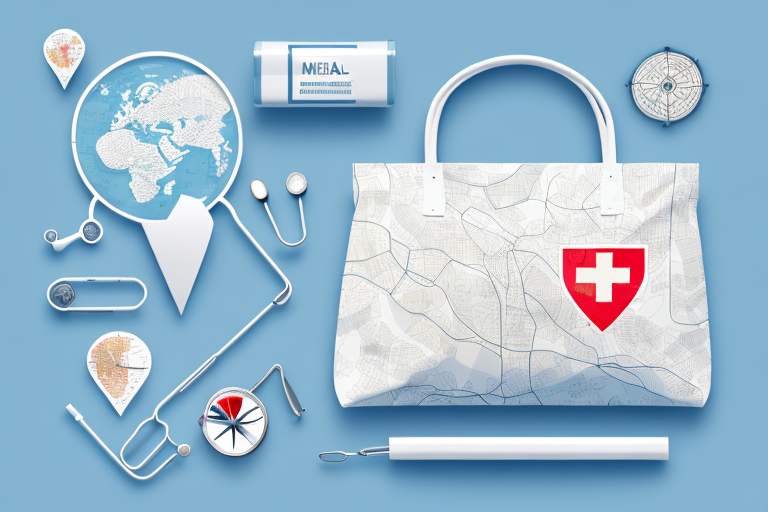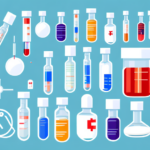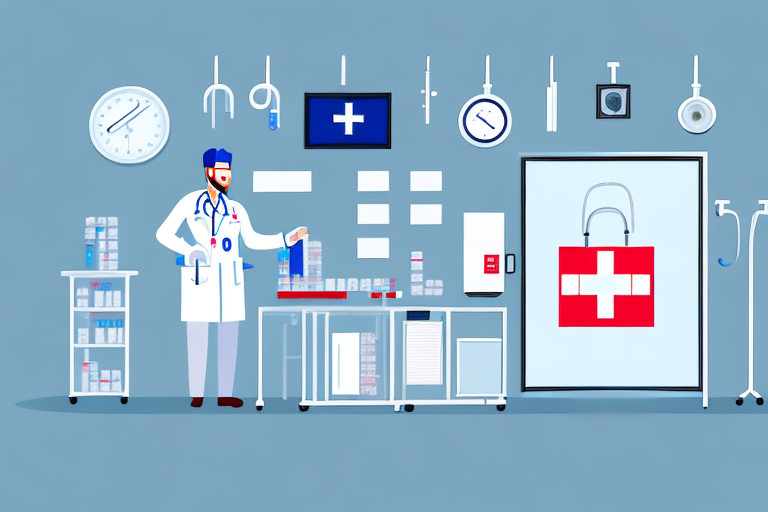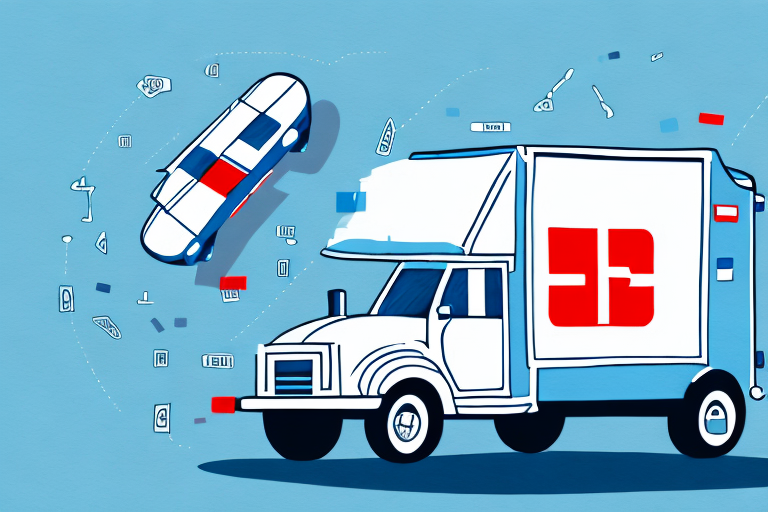Find Reliable Medical Couriers Near You Today!
In the fast-paced healthcare industry, the timely transportation of medical supplies and samples is crucial for accurate diagnosis and effective treatment. Reliable and efficient medical courier services ensure that these essential items are delivered safely and promptly, supporting healthcare facilities in providing optimal patient care.
According to a market research report, the medical courier services industry is expected to grow significantly, driven by the increasing demand for specialized logistics in healthcare.
Why Medical Couriers are Essential for Healthcare Facilities
Medical couriers specialize in delivering time-sensitive and fragile medical items, such as blood samples, lab specimens, and medical equipment. These items require specialized handling and transportation to ensure their integrity and prevent contamination or damage. By outsourcing the transportation of medical supplies to a dedicated courier service, healthcare facilities can reduce operational costs and allow medical professionals to focus on patient care rather than logistics.
Handling Sensitive Medical Items
Specialized handling techniques, including controlled temperature environments and secure packaging, are employed to maintain the quality and safety of medical items during transit.
Role in Emergency Situations
In emergency scenarios, medical couriers can provide rapid transportation of essential medical supplies and equipment to critical locations, especially in rural or remote areas where resources may be limited, potentially saving lives.
Choosing the Right Medical Courier Service for Your Needs
Selecting the appropriate medical courier service involves evaluating several key factors to ensure that your healthcare facility's specific needs are met effectively.
Experience and Expertise
Evaluate the courier's experience in handling medical items and their understanding of industry regulations and standards.
Security Measures
Ensure that the courier has robust security protocols, such as GPS tracking, tamper-evident packaging, and comprehensive background checks for employees.
Availability and Range of Services
Consider the courier’s service offerings, including emergency services, real-time tracking, and coverage areas to meet your facility's specific needs.
Pricing and Certifications
Compare pricing structures and verify that the courier holds necessary licenses and certifications to handle medical deliveries appropriately.
The Benefits of Using a Professional Medical Courier Service
Utilizing a reputable medical courier service offers numerous advantages that enhance the operational efficiency of healthcare facilities.
Faster Delivery Times
Professional couriers prioritize medical shipments, ensuring they reach their destination swiftly.
Reduced Risk of Loss or Damage
With specialized equipment and trained personnel, the risk of loss or damage to medical items is significantly reduced.
Cost Efficiency
Outsourcing delivery logistics can lead to cost savings by optimizing transportation routes and reducing the need for in-house resources.
Enhanced Patient Satisfaction
Timely and reliable delivery of medical supplies contributes to better patient outcomes and increased satisfaction.
According to the Centers for Medicare & Medicaid Services (CMS), efficient logistics play a pivotal role in the overall effectiveness of healthcare delivery.
Common Types of Medical Deliveries Handled by Couriers
Medical couriers are equipped to handle a diverse range of medical deliveries, each requiring specific handling and transportation protocols.
Blood and Specimens
Couriers transport blood samples and other specimens that require strict temperature controls to prevent degradation.
Medications and Biologics
Delivering prescription medications and biologic treatments that must remain within specific environmental conditions.
Medical Equipment and Devices
Transportation of essential medical equipment, from diagnostic tools to life-support machines, ensuring availability when needed.
Organs for Transplantation
Ensuring rapid and secure delivery of organs for transplantation, where time is of the essence.
Vaccines
Couriers handle vaccines requiring precise temperature control to maintain efficacy during transport.
According to the World Health Organization (WHO), maintaining the cold chain is critical for the effectiveness of vaccine distribution.
Ensuring Safe and Efficient Delivery of Medical Supplies and Samples
Adhering to industry best practices and guidelines is essential to maintain the safety and efficiency of medical deliveries.
Proper Packaging and Labeling
Using specialized packaging materials and clear labeling to protect items and comply with regulatory standards.
Temperature-Controlled Transport
Implementing necessary temperature controls for items like vaccines and biological samples to maintain their integrity.
Real-Time Tracking and Communication
Utilizing GPS tracking and communication tools to monitor delivery status and address any issues promptly.
Trained Personnel
Ensuring that delivery personnel are trained in handling medical items and using personal protective equipment (PPE) when necessary.
Following the Health and Human Services (HHS) guidelines helps maintain the safety and efficiency of medical deliveries.
The Role of Technology in the Modern Medical Courier Industry
Advancements in technology have significantly enhanced the capabilities and efficiency of medical courier services.
GPS Tracking Systems
Allowing precise tracking of shipments in real-time to ensure timely deliveries and quick responses to any delays.
Mobile Applications
Providing clients with easy access to delivery statuses, notifications, and communication with courier services.
Automated Inventory Tracking
Streamlining inventory management through technology to reduce errors and improve efficiency.
Drones and Robotics
Innovative solutions for rapid emergency deliveries and secure transportation of medical items.
A study by the National Center for Biotechnology Information (NCBI) highlights that the integration of advanced technologies is significantly enhancing the efficiency and reliability of medical courier services.
The Future of the Medical Courier Industry: Trends and Innovations
The medical courier industry is continuously evolving, embracing new technologies and innovative solutions to meet the growing demands of the healthcare sector.
Use of Drones for Emergency Medical Transport
Drones are being utilized to enhance the speed and reach of medical deliveries, especially in hard-to-access areas.
Robotic Delivery Systems
Robotic systems are improving security and efficiency in the transportation of sensitive medical items.
Automated Inventory Management
Reducing costs and increasing accuracy in inventory tracking and management through automation.
Integration with Healthcare IT Systems
Seamlessly connecting courier services with healthcare providers' information systems for better coordination and data sharing.
According to an article in the Harvard Business Review, the adoption of emerging technologies is set to transform the medical courier landscape in the coming years.
Tips for Cost-Effective Medical Courier Services without Compromising Quality
Healthcare facilities can implement several strategies to obtain cost-effective medical courier services without sacrificing quality.
Selecting the Right Courier
Choose a courier that aligns with your specific needs and offers the required services efficiently.
Negotiating Pricing Based on Volume
Engage in negotiations for better rates based on the volume of deliveries to achieve cost savings.
Consolidating Deliveries
Where possible, consolidate deliveries to reduce the number of trips and associated costs.
Maintaining High Standards
Ensure that cost reductions do not lead to compromises in the quality and safety of medical deliveries.
By selecting a reputable and reliable courier, healthcare facilities can achieve significant cost savings while maintaining high service standards.
How to Track Your Medical Deliveries in Real-Time
Modern medical courier companies offer advanced tracking and communication tools that provide real-time insights into the status of deliveries.
GPS Tracking
Allows precise location tracking of shipments, enabling timely updates and rapid response to any delays.
Mobile Applications
Enable healthcare professionals to monitor deliveries, receive notifications, and communicate directly with couriers through user-friendly mobile apps.
Email and Text Notifications
Provide timely updates on delivery statuses and alert users to any potential issues or delays.
Utilizing these tracking tools ensures that healthcare professionals stay informed and can take necessary actions to minimize disruptions in the delivery process.
Best Practices for Packing and Shipping Medical Items through a Courier Service
Proper packing and shipping practices are essential to maintain the safety and integrity of medical items during transit.
Temperature-Controlled Packaging
Essential for items like vaccines and biological samples to maintain their required storage conditions.
Moisture-Resistant Packaging
Prevents damage to sensitive items caused by exposure to moisture during transportation.
Shock-Absorbing Materials
Protects fragile medical equipment and specimens from physical damage during transit.
Clear Labeling and Documentation
Ensures that all items are easily identifiable and that necessary documentation accompanies each shipment for accurate delivery.
Following industry best practices for packaging and labeling not only protects the medical items but also ensures compliance with regulatory standards.
Why Outsourcing Your Medical Deliveries Can Improve Your Facility's Operations
Outsourcing medical deliveries to a professional courier service offers numerous operational benefits to healthcare facilities.
Reducing Operational Costs
Outsourcing eliminates the need for in-house transportation resources, leading to significant cost savings.
Increasing Efficiency
Professional couriers streamline the delivery process, ensuring that medical items reach their destination promptly and securely.
Improving Patient Satisfaction
Timely and reliable delivery of medical supplies enhances patient care and satisfaction.
Access to Specialized Expertise
Professional courier services bring specialized knowledge and equipment, ensuring that medical items are handled with the required care and precision.
By outsourcing transportation logistics, healthcare professionals can dedicate more time and resources to patient care, enhancing overall operational efficiency.
Legal Considerations When Hiring a Medical Courier Service
Ensuring legal compliance is crucial when selecting a medical courier service to protect your healthcare facility and maintain regulatory standards.
Compliance with Industry Regulations
Ensure that the courier service adheres to relevant regulations such as HIPAA for patient privacy and OSHA for workplace safety.
Licenses and Certifications
Verify that the courier holds all necessary licenses and certifications required to transport medical items safely and responsibly.
Insurance Policies
Confirm that the courier service has comprehensive insurance coverage to protect against loss or damage to medical items during transit.
Contract Review
Thoroughly review the courier's contract to understand the terms and conditions, ensuring that your facility is adequately protected in case of any issues.
By addressing these legal considerations, healthcare facilities can mitigate risks and ensure that medical deliveries are handled in compliance with all applicable laws and standards.
How to Compare and Choose the Best Medical Courier Service for Your Facility's Specific Needs
Selecting the best medical courier service involves a comprehensive evaluation of various factors to ensure that the chosen service aligns with your facility's requirements.
Experience and Expertise
Assess the courier's experience in the medical field and their ability to handle different types of medical deliveries effectively.
Range of Services Offered
Ensure that the courier provides the specific services your facility requires, such as temperature-controlled transport, emergency deliveries, and real-time tracking.
Adherence to Industry Standards
Verify that the courier complies with all relevant industry regulations and maintains high standards of service quality.
Pricing and Insurance
Compare pricing structures and confirm that the courier offers competitive rates while providing adequate insurance coverage for your deliveries.
Reputation and Reviews
Check online reviews and ratings to gauge the courier's reliability and customer satisfaction levels within the industry.
By carefully evaluating these factors, healthcare professionals can select a medical courier service that best meets their specific needs and budget, ensuring reliable and efficient medical deliveries.






















